March 25
Elton John

On this date in 1947, Elton John (né Reginald Kenneth Dwight) was born in Pinner, England. By age 4 was playing piano and reportedly could play any melody he heard. He dropped out of the Royal Academy of Music in London in 1961 to form his first band, Bluesology, which performed Ray Charles and Jim Reeves ballads, among others. He acquired his stage name from two of the musicians in Bluesology, Long John Baldry and Elton Dean.
After leaving Bluesology in 1966, he met Bernie Taupin, a lyricist with whom he would form a lifelong musical partnership. According to John’s website, Taupin could write lyrics in less than an hour and John would compose the music in half an hour. They have collaborated on more than 30 albums. John has sold more than 300 million records, making him one of the world’s best-selling artists.
His first major hit, “Your Song,” made the U.S. Top Ten charts in 1970. He went on to have other major hits, including “Rocket Man” (1972) and “Honky Cat” (1972). He created Rocket Records in 1974, the label under which he released the hits “Daniel” and “Crocodile Rock.” In that same year he collaborated with his friend John Lennon at Lennon’s final public concert in Madison Square Garden. Deemed the most successful pop artist of the 1970s, he often released at least two albums a year.
The singer battled bulimia and drug and alcohol addictions in the 1970s and 1980s. Just as his popularity waned, his band experienced a comeback at a free concert they hosted in Central Park. He produced chart-toppers in the 1980s such as “I Guess That’s Why They Call It the Blues” (1983) and “I’m Still Standing” (1983). He experienced a health scare in the late 1980s with potentially cancerous nodules affecting his vocal cords. This brush with illness helped convince him to take care of his health, fight off his addictions and become a generous philanthropist. In 1993 he formed the Elton John AIDS Foundation.
His domestic relationship with David Furnish, a former advertising executive and current filmmaker, started in 1993. They were married in 2014 and have two sons, Zachary and Elijah, born to a surrogate mother.
He was inducted into the Rock and Roll Hall of Fame in 1994, wrote songs for “The Lion King” and won an Academy Award for the “Lion King” song “Can You Feel the Love Tonight.” He won Tony Awards for his work on the theatrical productions of “The Lion King” (1998) and “Aida” (2000). His single, “Candle in the Wind,” honoring the tragic death of his friend Princess Diana, broke all records, and he donated proceeds to Diana’s favorite charities.
As an “out” gay, he rejects organized religion largely because “religion has always tried to turn hatred toward gay people. Religion promotes the hatred and spite against gays.” (Observer Monthly magazine, November 2006.) He was knighted in 1998 by Queen Elizabeth II for his contributions to music and fundraising for AIDS.
“From my point of view, I would ban religion completely. The reality is that organized religion doesn’t seem to work. It turns people into hateful lemmings and it’s not really compassionate.”
—Elton John, Observer Music Monthly interview (November 2006)
Gloria Steinem
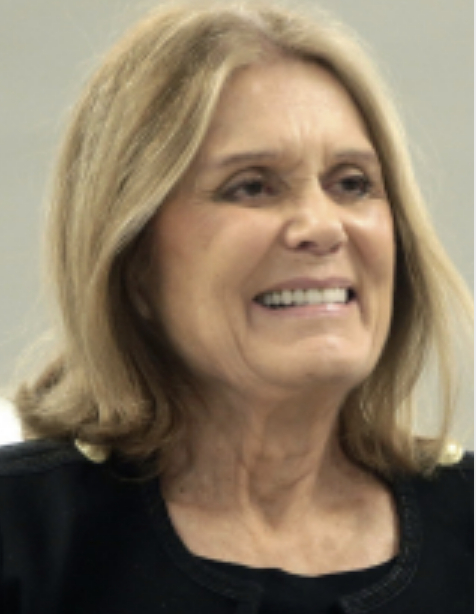
On this date in 1934, feminist leader and journalist Gloria Steinem was born in Toledo, Ohio, to Leo and Ruth (Nuneviller) Steinem. Her father abandoned the family when she was 10, leaving her to care for her mother, who was dysfunctional from depression. She went to school when possible, tap-danced in talent contests and mothered her mother. In 1951 she moved in with her older sister in Washington, D.C., and completed her high school education. She was accepted by Smith College, where she first started to write, and graduated magna cum laude in 1956.
The recipient of a two-year grant to India, she discovered that she was pregnant. During a stopover in England en route to India and facing a desperate crossroads, Steinem managed to arrange an abortion. She was later on the vanguard of those calling for legalized abortion. She moved in 1960 to New York City to start a journalism career, where she was met with sexist roadblocks such as the Life magazine editor who told her “We don’t want a pretty girl. We want a writer.”
In 1969 Steinem wrote her first feminist article. Throughout the next five years, she stumped for feminism around the country, becoming the women’s movement’s best-known, most quotable exponent. She helped found Ms. Magazine in 1971, convinced that freedom would come through “individual women telling the truth.” She defined feminism as “the belief that women are full human beings.”
In 1972, McCall’s magazine named her Woman of the Year. She was an influential participant at the National Women’s Conference in Houston in 1977, a landmark gathering. “Outrageous Acts and Everyday Rebellions,” her first collection of essays and articles, was published in 1983. She also wrote “Marilyn: Norma Jeane” (1986), a biography of Marilyn Monroe, “Revolution From Within: A Book of Self-Esteem” (1992) and “Moving Beyond Words” (1997). An idea generator and original thinker, Steinem remains one of feminism’s most elegant, loyal and thoughtful advocates.
PHOTO: Steinem speaking at the Women Together Summit at Carpenters Local Union in Phoenix in 2016. Gage Skidmore photo under CC 2.0.
“It’s an incredible con job, when you think of it, to believe something now in exchange for life after death. Even corporations, with all their reward systems, don’t try to make it posthumous.”
—Steinem, interview with Annie Laurie Gaylor, The Feminist Connection (November 1980)
Matilda Joslyn Gage
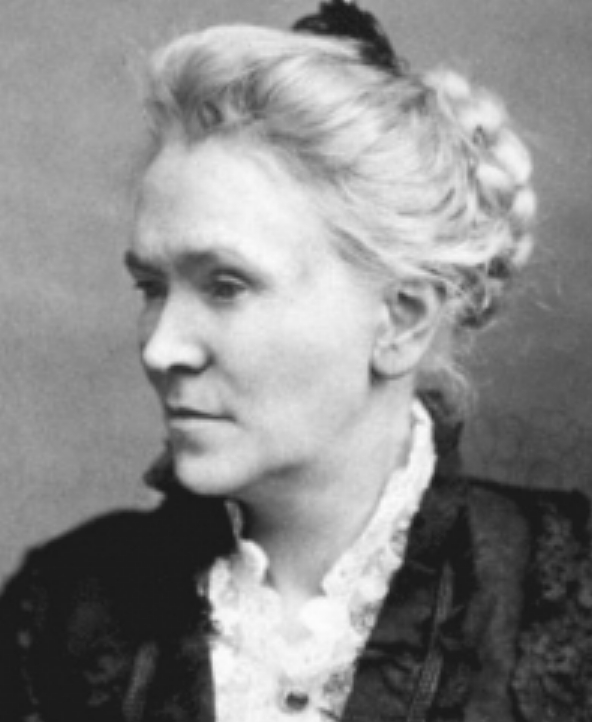
On this date in 1826, suffragist Matilda Electa Gage (née Joslyn) was born in Cicero, N.Y. Her father was Dr. Hezekiah Joslyn, whose home was a station on the underground railroad and who advocated for abolition of slavery, women’s rights, freethought and temperance. She married merchant Henry Gage at age 18 and gave birth to five children, one of whom died in infancy.
A founding member and later president of the National Woman Suffrage Association, Gage expressed indignation over “the wrongs inflicted upon one-half of humanity by the other half in the name of religion.” She delivered a major address, “Woman, Church, and State,” at a suffrage convention in 1878. By popular response, she later turned this address into a book of the same name in 1893. It documented woman-hating abuses ranging from celibacy to witch hunts that stemmed from religious doctrines.
Gage convened the historic Woman’s National Liberal Union in 1890, the first feminist group devoted to the promotion of the separation of church and state. Her warning of a union of Catholics and Protestants whose agenda was to put God in the Constitution and attack secular schools, is eerily timely today: “[I]n order to help preserve the very life of the Republic, it is imperative that women should unite upon a platform of opposition to the teaching and aim of that ever most unscrupulous enemy of freedom — the Church.”
She died in Chicago at age 71. Carved on her tombstone in Fayetteville, N.Y., is her well-known motto: “There is a word sweeter than Mother, Home, or Heaven; that word is Liberty.” (D. 1898)
“During the ages, no rebellion has been of like importance with that of Woman against the tyranny of the Church and State; none has had its far reaching effects. We note its beginning; its progress will overthrow every existing form of these institutions; its end will be a regenerated world.”
—"Woman, Church, and State" by Matilda Joslyn Gage (1893)
Robbie Fulks
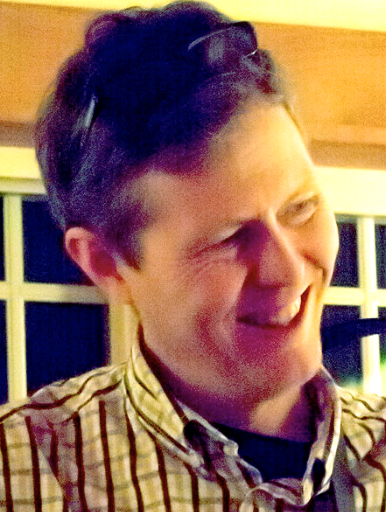
On this date in 1963, alt-country singer Robbie Fulks was born in York, Pa. He grew up in North Carolina and Virginia. Fulks took up the banjo at age 7. He dropped out of Columbia University, working as a paralegal, proofreader and actor. In 1983 he moved to Chicago, where he joined the bluegrass band Special Consensus. He also taught at Old Town School of Folk Music.
In 1993 he formed Robbie Fulks and the Trailer Trash. “Insurgent Country: Vol. 1: For a Life of Sin” came out in 1994, followed by volume II of “Insurgent Country” in 1995. Other early albums included “Let’s Kill Saturday Night” (1998), “Couples in Trouble” (2001) and “13 Hillbilly Giants.” His 2016 album “Upland Stories” was nominated for a Grammy for Best Folk Album and the song “Alabama at Night” was nominated for a Grammy for Best American Roots Song.
In an interview with the Sarasota Herald-Tribune (Oct. 23, 1998), Fulks said: “Religion is one of the important questions in life, I think. Or the disposition of our mortal souls and what happens to us after we die, and whether there is or isn’t a God. I definitely think about it every day of my life. Given that it’s that important a topic, it just makes sense to deal with it in music. I just took my own views and slightly radicalized them for [“God Isn’t Real”]. I’m not really a confirmed atheist. But I am kind of a reluctant disbeliever.”
Fulks has three children: sons Nick, Preston and Tennessee. His wife is the actress Donna Jay Fulks.
Fulks at a 2013 house concert; Larry Miller photo under CC 2.0.
God Isn’t Real
A world filled with wonder, a cold, fathomless sky
A man’s life so meager, he can but wonder why
He cries out to Heaven its truth to reveal
The answer: only silence, for God isn’t real.Go ask the starving millions under Stalin’s cruel reign
Go ask the child with cancer who eases her pain
Then go to your churches, if that’s how you feel
But don’t ask me to follow, for God isn’t real.He forms in his image a weak and foolish man
Speaks to him in symbols that few understand
For a life of devotion, the death blow he deals
We’d owe Him only hatred, but God isn’t real.Go tell the executioner of the power he can’t defy
Go tell his shackled victim of the mercy on high. . .
Then go to your churches, go beg, pray, and kneel,
But don’t ask me to follow, for God isn’t real.No, no matter how He should be, God isn’t real.
—Fulks, "God Isn't Real" (1998)
Courtlandt Palmer
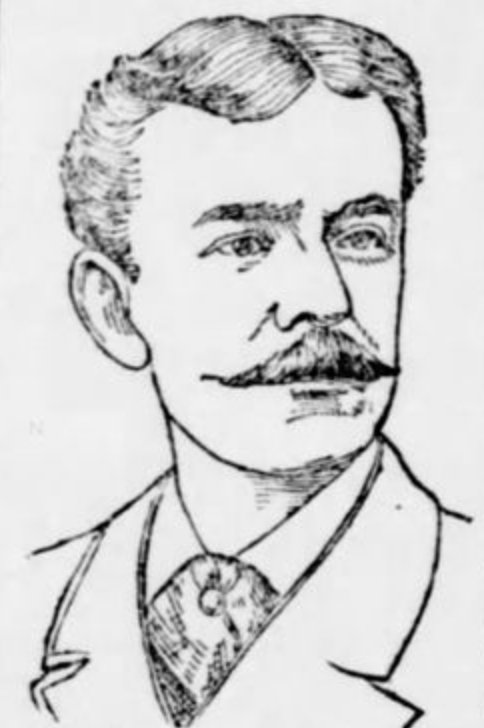
On this date in 1843, writer Courtlandt Palmer was born in New York. An 1869 graduate of Columbia Law School and heir to family wealth, Palmer used both assets to promote rationalism. He had rejected the Dutch Reformed church of his family at an early age. He founded the Nineteenth Century Club to promote freethought, serving as its first president. He also wrote for The Truth Seeker and other freethought publications.
The New York Sun, in its obituary, lauded Palmer for “a surpassing feat in making fashionable in New York a sort of discussion which before had been frowned upon as in the last degree pernicious, and especially unbefitting polite and conservative society. He set people to thinking and talking over moral and religious questions, which they had not dared to consider, and made familiar to them views from which they had turned in alarm as morally poisonous and soul-destroying.
The Sun obituary continued: “The Nineteenth Century Club was established as a Freethinking debating society, and not many years ago it would have been avoided and denounced as an institution for the propagation of Infidelity and odious Radicalisms. Yet under Mr. Palmer’s lead the club received the stamp of fashionable approval, and its discussions have been carried on before crowded assemblages of ladies and gentlemen in full evening dress. … Where they had been sure there was only one possible side, they saw other people found many sides.”
The obituary also noted that Palmer’s death at age 45 of peritonitis defied the stereotype “that the deathbed of the unbeliever is an agonizing one.” It noted his final words to family were “I want you one and all to tell the whole world that you have seen a Freethinker die without the last fear of what the hereafter may be.” (D. 1888)
“He investigated for himself the questions, the problems, and the mysteries of life. Majorities were nothing to him. No error could be old enough, popular, plausible, or profitable enough, to bribe his judgment or to keep his conscience still. He was a believer in intellectual hospitality, in the fair exchange of thought, in good mental manners, in the amenities of the soul, in the chivalry of discussion. He believed in the morality of the useful, that the virtues are the friends of humanity, the seeds of joy. He lived and labored for his fellow men.”
—Robert G. Ingersoll's funeral oration on behalf of Palmer, cited in "Four Hundred Years of Freethought" by S.P. Putnam (1894)
Béla Bartók
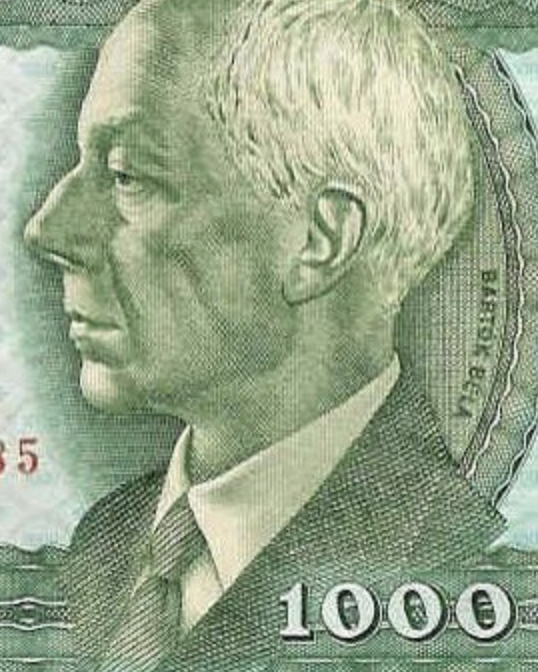
On this date in 1881, composer, pianist and ethnomusicologist Béla Bartók was born in Nagyszentmiklós, Hungary. He and Franz Liszt are regarded by many as the greatest Hungarian composers. Trained in piano and composition at the Budapest Academy of Music, Bartók began his career as a touring pianist in 1903. His talents as a composer soon became apparent, and Bartók assumed a professorship at the academy in 1908.
He drew inspiration from the folk music of the Balkans and other regions while engaging in intense studies of harmonic practices, including those of contemporary French composers. While not an expert in stringed instruments, Bartók’s compositions displayed a preternatural understanding of the violin: “He enriched [the violin’s] repertoire with such essential works as his two Sonatas for Violin and Piano (of 1921 and 1922, respectively), two Rhapsodies for Violin and Orchestra (1928-29), 44 Duos for Two Violins (1931), and the Sonata for Solo Violin (1944).” (New York Philharmonic)
His childhood Catholicism was gone by early adulthood. “By the time I had completed my 22nd year, I was a new man — an atheist.” (Béla Bartók: Life and Work by Benjamin Suchoff, 2001) He later became attracted to Unitarianism and publicly converted in 1916. A committed anti-fascist, Bartók opposed Hungary’s alliance with Germany in World War II and refused to perform in Germany during Nazi rule.
He married Márta Ziegler in 1909 when he was 28 and she was 16. They divorced in 1923 and he married Ditta Pásztory, a piano student, two months later when she was 19 and he was 42. He had two sons, Béla Bartók III and Péter. Bartók and Ditta emigrated to the U.S. in 1940 and he accepted a research fellowship at Columbia University, where they compiled a large collection of Serbian and Croatian folk songs for Columbia’s libraries. He died at age 64 in New York from complications of leukemia. (D. 1945)
PHOTO: Bartók’s portrait on a 1,000-forint banknote. Hungarian National Bank photo. GNU Free Documentation License
“To violinist Stefi Geyer, he once wrote about his religious belief, calling the trinity a ‘clumsy fable’ that ‘enslaves thought.’ … The existence of the universe did not require the hypothesis of a creator. ‘Why don’t we simply say: I can’t explain the origin of its existence and leave it at that?’ “
—"Béla Bartók" by David Cooper (2015)
